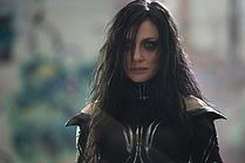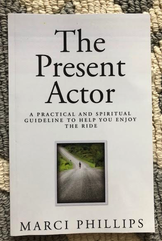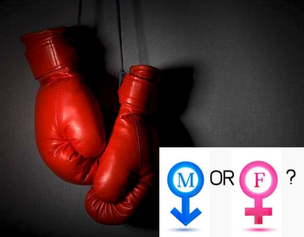
Female (and male) moviegoers cued up in lines across the country when Wonder Woman made it to theaters. The 1980’s classic was beloved by many but while Batman, Superman, Spiderman, the Hulk, and a host of other Marvel and DC heroes got the silver screen treatment, sheroes for the most part, remained supporting cast. It was monumental then, when Marvel brought Wonder Woman to the big screen.
The movie was indeed wonderful. Diana Prince was confident, principled, beautiful, compassionate, and strong. On top of that, any romantic interludes were a part of the story, not the story. On the surface, she was the shero the #metoo movement had been waiting for. But while I enjoyed the movie, I didn’t resonate with my own experience. Diana’s story, her origins as the daughter of a god, nurtured in a strong matriarchical society, was too far from our current cultural and political reality. It was based on a Marvel universe that didn’t mirror my reality. Instead, I found a story that rang truer in, of all places, Thor: Ragnorak.
I will admit that I had never seen a Thor movie before, watched it on the plane, and was drawn in by the hunky lead actor (and Cate Blanchett). You’re right to be skeptical that a movie about a beefy Norse god, would be feminist. The very mythology of Thor is paternalistic, from the unilateral way Odin rules Asgard, to his relationship with his sons, to the lack of strong female characters. I watched the previous two movies to learn that the main female character in those movies was a waif-y but brilliant and brave human. Even Thor’s mother (hello, Renee Russo!), while courageous, is bested in one short scene.
However, Thor: Ragnorak has a strong female character in Cate Blanchett’s, Hela. But she’s the villain you exclaim! She plays the anti-hero! Her character is reductive and falls into the camp of heartless, child-less, dragon lady. While this is true, Blanchett gives her so much more depth, and the telling of her history lifts up the plight of women. It doesn’t pay homage to women by casting a woman in a powerful role, it pays homage to women by telling a truer story of women in history.
Moreover, Hela’s story is told by Hela (all the better that it’s in Blanchett’s voice), uninterrupted. I think it’s important that Hela tells her own story, almost entirely alone, and it’s not an explanation before a big fight scene. This is even more remarkable given that Hela is villain. As Hela walks into the throne room with her recently anointed henchman, Skurge, she pieces the Michaelango-esque ceiling with spears (which magically appear in her hands) and pulls down the murals of Odin and Thor’s triumphs in battle. The ceiling gives way and reveals a hidden history of Hela riding alongside Odin, wielding the famous hammer. She was the one who conquered the nine realms and built Asgard but Odin has hidden this past. This point is made clearer when Hela addresses the citizens of Asgard and asks them to kneel before her. Granted that’s not the best way to get people to respect you, that wasn’t why the Asgardians refused. As she proclaimed, “Does no one know who I am? Does no one know our history?”
They don’t because Odin has erased her from Asgard’s history and taken credit for all of it, presenting himself as the sole hero. Upon entering Odin’s chamber of treasures, Hela knocks over a golden vase, flatly stating, “fake”. She challenges and exposes Odin’s manufactured grandeur, from the treasures to peace treaties.
Even Hela’s depiction as drawing her power from Asgard could be a nod to women-centered wiccan and pagan religions. And maybe the final scene where Hela battles the demon-monster as he destroys Asgard, is reflects the destruction of women-centered societies and power, because destroying Asgard is the only way to destroy Hela.
Our collective human history has somehow managed to erase the contributions of women. Matriarchical societies were more common than we have been taught. Women held high status as healers, priestesses, keepers of knowledge, and political leaders but most modern history books fail to include those stories. Not surprisingly, Hollywood has marched in step. Only recently have more movies been focused on women’s contributions. Hidden Figures and Big Eyes come to mind. Thus, in telling Hela’s story, her demonization and erasure, in my opinion, is a truer depiction of the struggle of women and, ultimately a feminist act.
I searched the web for answers as to why this version of Thor was so markedly different from the previous two. In the third installment of the franchise (excluding cross-overs) Thor seems to have matured from a one-dimensional strong, silent type to a neurotic, sensitive, and hilarious superhero who’s still able to kick butt. The hair cut was also a welcome change. The selection of Taika Waititi may have been a big factor although I found several interviews with lead actor, Chris Hemsworth voicing a desire to break out of his too-tight armor and have some fun. First, well done gentleman. The combination of Waititi’s history of directing independent works that feature under-represented people (Two Cars, One Night) and varied subject matter and genre exploration combined with Hemsworth’s comedic bent meant for a very enjoyable movie.
But I didn’t find anything to suggest that either men were looking to uplift women or tell a different history. Maybe it was the influence of Academy Award winning actress Cate Blanchett. While Blanchett gives interviews in which she riffs about being Marvel’s first female villain, she doesn’t expound on this point. I hadn’t even realized that Hela was the first female villain, another notch for womankind.
But it wasn’t just the uplifting of women, the story also dismantles some paternalistic elements of the past two movies. In the first two movies, Odin is portrayed as the powerful but benevolent king who brought peace to the universe and forgiving father to Loki (who tried to dethrone him yet he wasn’t imprisoned!). In Ragnarok, we see a dark side to Odin. Viewers will probably forgive him for abandoning and imprisoning his first-born (she is the goddess of death, after all), but that is very poor parenting at the least and abusive at the worst. As Hela explained, “I was his weapon in the conquest of the nine realms.” He fed her appetite for destruction but when he couldn’t control her anymore, he dispensed with her. Or maybe he felt challenged by her power? He also doesn’t show remorse for imprisoning her or accept any blame for creating the situation. The story finally gets complicated.
In the end, the movie’s depiction of the history of women is more realistic and relevant to today’s climate than the depiction of the history of women in Wonder Woman. I’m not sure any of this was intentional. The optimist in me wants to believe that it wasn’t because that means Hollywood has realized how our histories and narratives are sometimes manufactured for the benefit of the male hero and is unintentionally unwinding and exposing that revisionist history.




 RSS Feed
RSS Feed
